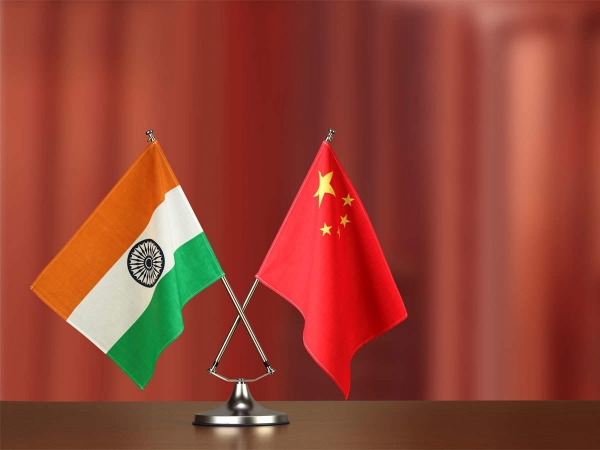News Sources: India may create new border conflict to shift attention from worsening economic, pandemic conditions
Indian Army Chief Manoj Mukund Naravane said in May that Indian troops are on high alert and ready, as India still has between 50,000 and 60,000 troops in Ladak
- by Gaurav Grover 2021-06-10 07:14:10
News Sources said on Wednesday that while there are channels between China and India to discuss the disconnect in the remaining regions, China should be wary of nationalist manipulation in India, following media concerns over the issue of the border between China and India after a year of fighting in the Galwan Valley.
On June 15, 2020, the China-India border dispute became its first deadly military confrontation since 1975, killing four Chinese soldiers and at least 20 Indians. After the ninth round of high-level talks, China and India announced a separation agreement on the north and south shores of Lake Pangong in February.
On Tuesday, The Telegraph reported that India is increasing its military concentration amid "fear of further conflict." Russian news outlet The Independent said on Monday that warmer weather in the Himalayas could lead to an increased risk of clashes between China and IndiaIndian Army Chief Manoj Mukund Naravane said in May that Indian troops are on high alert and ready, as India still has between 50,000 and 60,000 troops in Ladakh, and deployments have not decreased after the separation agreement, Indian News reported.
Sun Weidong, China's ambassador to India, said in his recent public address that the border dispute is a matter left by history and should be properly placed in bilateral relations, and China insists on addressing differences through negotiations while standing firm, safeguard their sovereignty, security, and development interests, according to the Chinese Embassy in India.

As neighbors with a population of more than a billion, the two countries share more common interests than differences, Sun said.
Most of the Chinese and Indian soldiers have withdrawn, Qian Feng, director of the research department at the National Institute of Tsinghua University, told us on Wednesday. Although consensus is not achieved in the remaining regions (such as Hot Springs and Depsang Plains), the scale of the confrontation is much smaller with less significant impact.
At the 11th round of senior commander-level talks held in Ladakh on April 9, senior representatives from the two countries met for 13 hours to discuss the issue of disengagement in the remaining venues.
The two countries maintain contacts through military and diplomatic channels, Qian said, noting that due to the increase in the epidemic in India, face-to-face conversations have been suspended, but the hotline and telephone communications are still available.
Some saw the current situation on the China-India border as much better than in the same period last year. But experts have warned that if the remaining stalemate continues, it will be detrimental to military relations and the stability of the western part of the China-India border.
Hu Zhiyong, a researcher at the Institute of International Relations of the Shanghai Academy of Social Sciences, told us on Wednesday that if India's economy and epidemic continue to deteriorate, India could start a new border conflict.
"India has a political tradition of always looking for border problems as a distraction when there is a crisis at home," Hu said. "China must be very vigilant about this."
India reported more than 92,500 new COVID-19 infections on Tuesday, averaging more than 111,000 cases in the past seven days. Despite the downward trend of the pandemic, the BJP led by Indian Prime Minister Narendra Modi is seeking more support in local elections, following defeats in crucial states in May.
Qian said that China's infrastructure along the border is well built, and although there are not many forces on the front line, it can always be strengthened from the second line.
Indian News reported that Indian Foreign Minister Subrahmanyam Jaishankar said in May that India-China relations were at a crossroads and that they could not consider cooperation with China in other areas as long as border tensions persist.
Two days before the withdrawal of Chinese and Indian forces, US President Joe Biden and Modi agreed on February 8 to work closely together to strengthen the Indo-Pacific framework amid "threats" from China.
Russian President Vladimir Putin said over the weekend that Chinese and Indian leaders are responsible for resolving the border disputes, and it is important that no forces from outside the region interfere in the process, media reported.
Also Read: Salaried employee working from home? Check Income Tax rules for e-filing ITR on new portal
POPULAR POSTS
Loan EMIs to Drop as RBI Slashes Repo Rate - Full MPC December 2025 Highlights
by Shan, 2025-12-05 11:49:44
Zoho Mail vs Gmail (2025): Which Email Platform Is Best for Businesses, Startups, and Students?
by Shan, 2025-10-09 12:17:26
PM Modi Launches GST Bachat Utsav: Lower Taxes, More Savings for Every Indian Household
by Shan, 2025-09-24 12:20:59
$100K H-1B Visa Fee Explained: Trump’s New Rule, Clarifications & Impact on Indian Tech Workers
by Shan, 2025-09-22 10:11:03
India-US Trade Deal Soon? Chief US Negotiator Arrives in Delhi as Talks Set to Begin Tomorrow
by Shan, 2025-09-15 11:54:28
Modi Meets Xi: Trump’s Tariffs, Strategic Autonomy, and the Future of Asia’s Power Balance
by Shan, 2025-09-03 06:40:06
Google Claims Gemini AI Uses Just ‘Five Drops of Water’ Per Prompt, Sparks Debate
by Shan, 2025-08-22 12:34:27
RECENTLY PUBLISHED

Pine Labs IPO 2025: Listing Date, Grey Market Premium, and Expert Outlook
- by Shan, 2025-11-05 09:57:07

The Agentic Revolution: Why Salesforce Is Betting Its Future on AI Agents
- by Shan, 2025-11-05 10:29:23

Top 10 Insurance Companies in India 2026: Life, Health, and General Insurance Leaders Explained
- by Shan, 2025-10-30 10:06:42

OpenAI Offers ChatGPT Go Free in India: What’s Behind This Big AI Giveaway?
- by Shan, 2025-10-28 12:19:11

Best Silver Investment Platforms for 2025: From CFDs to Digital Vaults Explained
- by Shan, 2025-10-23 12:22:46





 Subscribe now
Subscribe now 